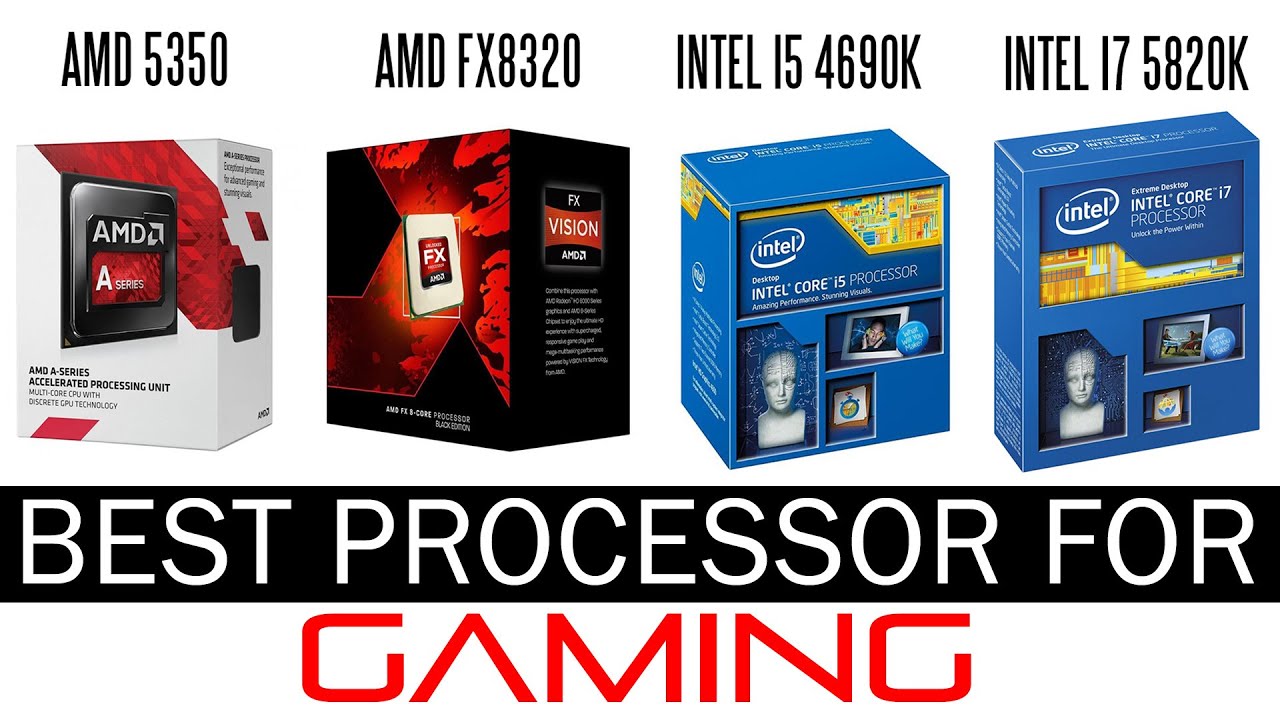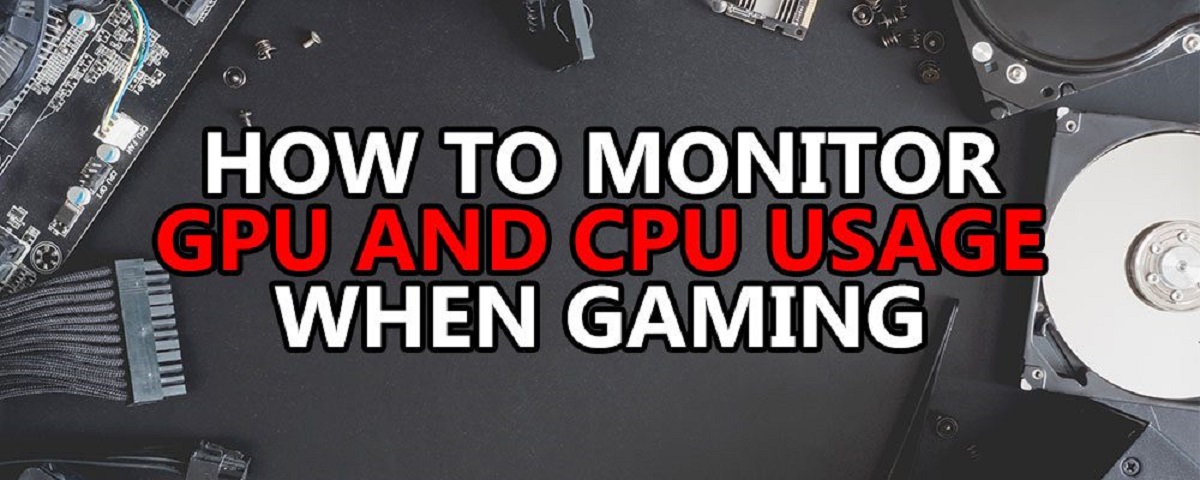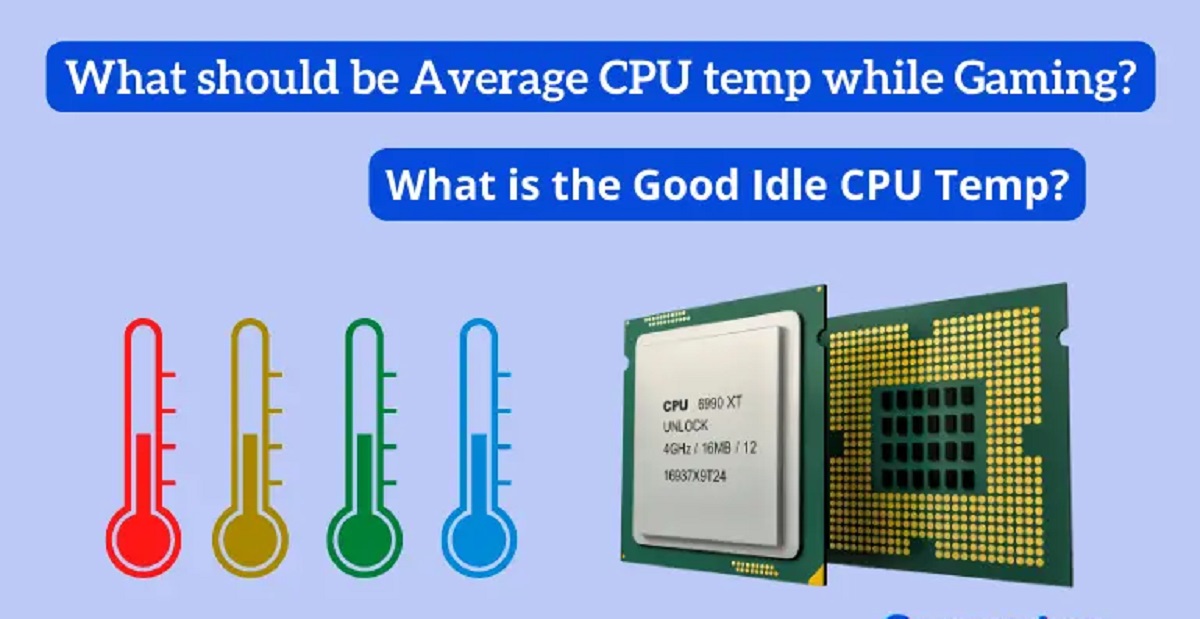Introduction
When it comes to gaming, having the right CPU (Central Processing Unit) can greatly impact your gaming experience. A powerful CPU can ensure smooth gameplay, faster load times, and better overall performance. But with so many options on the market, it can be challenging to determine which CPU is best suited for gaming.
In this article, we will guide you through the process of choosing the perfect CPU for your gaming needs. Whether you’re a casual gamer on a budget or a hardcore enthusiast looking for top-notch performance, we’ll provide insights into the factors you should consider when selecting a CPU.
Understanding the intricacies of CPUs can be overwhelming, especially for those new to the gaming world. However, by familiarizing yourself with some key concepts and factors, you’ll be able to make an informed decision and optimize your gaming setup.
We’ll discuss the importance of factors such as clock speed, core count, cache memory, and architecture. These components directly affect the CPU’s performance, and understanding their significance will help you narrow down your choices.
Budget is another crucial aspect to consider. Not everyone can afford the latest, high-end CPUs. Therefore, we will also explore some budget-friendly options that deliver excellent gaming performance with a lower price tag.
For those seeking the ultimate in gaming performance, we’ll delve into the world of high-end CPUs. These cutting-edge processors offer superior power and capabilities, making them ideal for gaming enthusiasts who demand the best.
Overclocking is another topic we will cover. By pushing your CPU beyond its standard clock speed, you can unlock additional performance, but it’s essential to understand the risks and necessary precautions.
Of course, with great power comes great heat, and ensuring proper cooling is essential for any gaming setup. We’ll explore different CPU cooling solutions to keep your CPU running at optimal temperatures and prevent performance degradation.
Lastly, we’ll provide a comparison between two popular CPU brands, Intel and AMD. Both have their strengths and weaknesses, and understanding the differences will help you choose the best CPU for your specific gaming requirements.
By the end of this article, you’ll have a clear understanding of what CPU is best for gaming and be equipped with the knowledge to make an informed decision. So, let’s dive in and level up your gaming experience!
Understanding CPU for Gaming
Before we dive into choosing the best CPU for gaming, it’s important to understand the role of the CPU in gaming performance. The CPU is often referred to as the “brain” of the computer, as it handles all the necessary calculations and instructions for running games.
One of the key factors to consider when it comes to CPUs is their clock speed. Clock speed refers to the number of cycles the CPU can execute in a second, measured in gigahertz (GHz). A higher clock speed means faster processing, resulting in smoother gameplay and quicker response times.
Another factor to consider is the number of cores in a CPU. Cores can be thought of as individual processing units within the CPU. Games that are optimized for multi-core CPUs can take advantage of the additional cores, leading to better performance and multitasking capabilities.
Cache memory is also an important aspect to consider. Cache memory is a small and fast memory located on the CPU chip, used to store frequently accessed data. CPUs with larger cache sizes can retrieve data faster, resulting in improved gaming performance.
The architecture of a CPU is another crucial factor. Different CPU architectures have varying levels of efficiency and performance. It’s important to consider the latest CPU architectures, as they often come with advancements that can significantly enhance gaming performance.
Understanding these key components of a CPU will help you assess and compare different CPUs to determine which one will best meet your gaming needs. Additionally, it’s essential to consider the system requirements of the games you plan to play, as some games may require more powerful CPUs.
Now that we have established an understanding of the essential aspects of CPUs for gaming, let’s move on to exploring the factors to consider when choosing a CPU for gaming.
Factors to Consider When Choosing a CPU for Gaming
When selecting a CPU for gaming, there are several important factors that you should consider to ensure optimal performance. Let’s explore these factors in detail:
1. Clock Speed: As mentioned earlier, the clock speed of a CPU impacts its processing power. Look for CPUs with higher clock speeds, as they can handle gaming tasks more efficiently and deliver a smoother gaming experience.
2. Core Count: Games are becoming increasingly optimized for multi-core CPUs. Having more cores allows the CPU to handle multiple tasks simultaneously, resulting in improved gaming performance. Aim for CPUs with higher core counts, especially quad-core or higher, to take advantage of modern game optimization.
3. Cache Memory: The cache memory of a CPU plays a vital role in storing frequently accessed data, improving overall performance. Look for CPUs with larger cache sizes, as this allows for faster data retrieval and reduces potential bottlenecks during gaming sessions.
4. GPU Integration: Some CPUs come with integrated graphics processing units (GPUs), which can be beneficial for casual gaming or when paired with a dedicated graphics card. While dedicated graphics cards typically offer better performance, CPUs with integrated GPUs can be a budget-friendly option for entry-level gaming.
5. Power Consumption: Consider the power consumption of the CPU, as it can impact your electricity bill and the amount of heat generated. CPUs with lower power consumption are more energy-efficient and tend to produce less heat, which results in a cooler and more stable gaming environment.
6. Compatibility with Motherboard: Ensure that the CPU you choose is compatible with your motherboard. Check the socket type and chipset compatibility to avoid any compatibility issues.
7. Budget: Gaming CPUs come in various price ranges. Determine your budget and strike a balance between performance and affordability. It’s important to prioritize performance-related factors while staying within your budget constraints.
By considering these factors and understanding their importance, you’ll be able to make a more informed decision when choosing a CPU for gaming.
In the next sections, we’ll explore specific budget-friendly and high-end CPUs that stand out in terms of gaming performance.
Budget-Friendly CPUs for Gaming
Not everyone has a hefty budget to spend on a top-of-the-line CPU for gaming. Thankfully, there are several budget-friendly options available that offer impressive performance for the price. Here are some CPUs that provide excellent value for gamers on a budget:
1. AMD Ryzen 5 3600: The Ryzen 5 3600 from AMD is a fantastic choice for budget-conscious gamers. With its 6 cores and 12 threads, it offers solid multi-threaded performance. The Ryzen 5 3600 also boasts a base clock speed of 3.6GHz, which can be boosted up to 4.2GHz, delivering smooth gameplay in most modern titles.
2. Intel Core i5-9400F: Intel’s Core i5-9400F is another budget-friendly CPU that provides excellent gaming performance. It features 6 cores and 6 threads, making it a capable processor for gaming tasks. With a base clock speed of 2.9GHz and boost clock speed of 4.1GHz, it can handle demanding games with ease.
3. AMD Ryzen 3 3300X: The Ryzen 3 3300X is a budget CPU that punches above its weight. With 4 cores and 8 threads, it offers commendable performance for gaming. Its base clock speed of 3.8GHz and boost clock speed of 4.3GHz ensure smooth gameplay, even in intense gaming sessions.
4. Intel Core i3-10100: The Core i3-10100 from Intel is a budget CPU that still packs a punch. With 4 cores and 8 threads, it provides solid performance for gaming. Its base clock speed of 3.6GHz and boost clock speed of 4.3GHz make it capable of handling most games without breaking the bank.
5. AMD Ryzen 5 2600: If you’re looking for an excellent budget CPU from the previous generation, the Ryzen 5 2600 is a great choice. With 6 cores and 12 threads, it offers impressive multi-threaded performance. Its base clock speed of 3.4GHz and boost clock speed of 3.9GHz ensure smooth gaming experiences.
These budget-friendly CPUs provide solid gaming performance without breaking the bank. While they may not have all the bells and whistles of higher-end options, they are more than capable of handling most modern games with ease.
Now that we have covered budget-friendly CPUs, let’s move on to exploring high-end CPUs that cater to gamers who demand top-notch performance.
High-End CPUs for Gaming
For gamers who demand the absolute best in performance, high-end CPUs are the way to go. These processors offer cutting-edge technology, delivering unparalleled gaming experiences. Let’s take a look at some of the top high-end CPUs for gaming:
1. AMD Ryzen 9 5900X: The Ryzen 9 5900X is a flagship CPU from AMD that excels in both gaming and productivity tasks. With its 12 cores and 24 threads, it can handle demanding games and heavy multitasking effortlessly. Its base clock speed of 3.7GHz and boost clock speed of 4.8GHz provide blazing-fast performance to tackle any game with ease.
2. Intel Core i9-10900K: Intel’s Core i9-10900K is a powerhouse CPU designed for enthusiasts and hardcore gamers. With 10 cores and 20 threads, it offers exceptional multi-threaded performance. Its base clock speed of 3.7GHz and boost clock speed of 5.3GHz make it one of the fastest gaming processors available.
3. AMD Ryzen Threadripper 3960X: The Ryzen Threadripper 3960X is a beast of a CPU, designed for extreme gaming and heavy workloads. With its 24 cores and 48 threads, it delivers unparalleled multitasking performance. Its base clock speed of 3.8GHz and boost clock speed of 4.5GHz make it a powerhouse for both gaming and content creation.
4. Intel Core i7-10700K: The Core i7-10700K from Intel is a high-end CPU that strikes a balance between gaming performance and value. With 8 cores and 16 threads, it offers excellent multi-threaded capabilities. Its base clock speed of 3.8GHz and boost clock speed of 5.1GHz ensure smooth gaming experiences and effortless multitasking.
5. AMD Ryzen 7 5800X: The Ryzen 7 5800X is a high-performance CPU that provides an excellent gaming experience. With 8 cores and 16 threads, it offers a good balance between gaming and multitasking. Its base clock speed of 3.8GHz and boost clock speed of 4.7GHz make it a solid choice for gaming enthusiasts.
These high-end CPUs are built to handle the most demanding gaming tasks and deliver exceptional performance. They are ideal for gamers who want to experience the latest games at the highest settings and ensure future-proofing for years to come.
Now that we have explored high-end CPUs, let’s dive into the topic of overclocking and its impact on gaming performance.
Overclocking and its Impact on Gaming Performance
Overclocking is a technique where you push your CPU beyond its factory-set specifications to achieve higher clock speeds and performance. By increasing the CPU’s clock speed, you can potentially experience improved gaming performance. However, it’s important to understand the process and its impact before attempting to overclock your CPU.
When you overclock your CPU, you essentially increase its clock speed and voltage to make it run faster. This can result in higher frame rates, reduced loading times, and smoother gameplay. However, overclocking generates more heat, which can lead to stability issues if not properly managed.
Before diving into overclocking, it’s crucial to have a suitable cooling solution in place. Upgrading to an aftermarket CPU cooler or investing in a liquid cooling system can help dissipate the additional heat generated by the overclocked CPU.
Overclocking is done through the computer’s BIOS or by using specialized software. It involves adjusting settings such as the CPU multiplier, voltage, and power limit to achieve the desired overclocked speed. It’s important to note that not all CPUs are created equal, and some may overclock better than others.
While overclocking may seem enticing, it does come with its own risks. Pushing a CPU beyond its recommended limits can potentially reduce its lifespan and increase the chances of instability or crashes. It’s recommended to proceed with caution, start with conservative overclocks, and test for stability to ensure a safe and optimal overclocking experience.
Another aspect to consider is that not all CPUs are unlocked for overclocking. Intel CPUs with a “K” suffix and AMD CPUs with an “X” suffix are designed for overclocking. If you have a CPU without these suffixes, it may not be overclockable.
It’s also essential to monitor the temperature and performance of your overclocked CPU. Using monitoring software, ensure that the CPU temperatures are within safe limits, and that the system remains stable during intense gaming sessions.
Ultimately, the impact of overclocking on gaming performance can vary. In some cases, you may see noticeable improvements in frame rates and responsiveness, while in others, the gains may be marginal. It depends on factors such as the specific CPU model, cooling solution, and the optimizations made during the overclocking process.
Before attempting to overclock your CPU, it’s recommended to do thorough research, consult forums and guides, and understand the risks involved. With the right precautions and proper cooling, overclocking can potentially unlock additional performance and enhance your gaming experience.
Now that we have covered overclocking, let’s shift our focus to the importance of CPU cooling solutions for gaming.
CPU Cooling Solutions for Gaming
Proper CPU cooling is crucial for maintaining optimal performance and system stability during gaming sessions. CPUs generate considerable heat while running demanding games, and if not adequately cooled, they can throttle performance or even suffer from long-term damage. Let’s explore some popular CPU cooling solutions for gaming:
1. Air Cooling: Air coolers are the most common and cost-effective cooling solution. These coolers consist of a heatsink and fan combination that dissipates heat away from the CPU. Large heatsinks with multiple heat pipes and powerful fans help keep the CPU cool even during intense gaming sessions. Air coolers come in various sizes and designs, from stock coolers provided with CPUs to high-performance aftermarket options.
2. Liquid Cooling: Liquid cooling systems, also known as all-in-one (AIO) coolers, provide efficient cooling for gaming CPUs. These coolers feature a pump, radiator, and water block. The pump circulates a liquid, typically a mixture of water and coolant, which absorbs heat from the CPU and carries it to the radiator, where it is dissipated by fans. Liquid cooling systems can offer better cooling performance and quieter operation compared to air coolers.
3. Custom Water Cooling: For enthusiasts seeking the ultimate in cooling performance and customization, custom water cooling loops are an option. These setups involve individually selecting and assembling components such as water blocks, radiators, pumps, and fittings to create a custom cooling solution. Custom water cooling loops provide excellent thermal performance, allowing for even lower CPU temperatures compared to other cooling methods. However, they require more time, effort, and maintenance.
4. Thermal Paste and Thermal Interface Materials (TIM): Proper application of thermal paste between the CPU and the cooler is essential for efficient heat transfer. High-quality thermal paste helps fill microscopic gaps and improves conductivity, ensuring effective heat dissipation. Consider using premium thermal paste or thermal interface materials to minimize CPU temperatures.
When selecting a CPU cooling solution, it’s important to consider factors such as CPU compatibility, TDP (Thermal Design Power) requirements, available space in the PC case, and budget. It’s recommended to choose a cooling solution that can effectively keep the CPU temperatures within safe limits, allowing for sustained peak performance during extended gaming sessions.
Regular maintenance and cleaning of CPU coolers are also necessary to prevent dust build-up, which can impede airflow and decrease cooling efficiency. Ensure that fans and radiators are free from debris and that air intake vents are clear.
By investing in a reliable and efficient CPU cooling solution, you can ensure that your gaming CPU runs at optimal temperatures, preventing thermal throttling and maximizing gaming performance.
Now that we have discussed CPU cooling solutions, let’s compare two popular CPU brands in the gaming world: Intel and AMD.
Comparing CPUs: Intel vs AMD
When it comes to choosing a CPU for gaming, two major players dominate the market: Intel and AMD. Both brands offer a wide range of CPUs with various models and specifications. Let’s take a closer look at the strengths and considerations of each:
Intel: Intel CPUs have long been a popular choice among gamers. They are known for their strong single-core performance, which is important for gaming, especially in titles that are not well-optimized for multi-threading. Intel CPUs often excel in terms of clock speeds and instructions-per-clock (IPC), which can lead to faster gaming performance in certain scenarios. Additionally, Intel CPUs have well-established software and driver support, providing stability and compatibility with a wide range of games and applications.
However, Intel CPUs tend to come with a higher price tag compared to their AMD counterparts. They also have lower core and thread counts on average, which may impact performance in tasks that heavily rely on multi-threading, such as content creation or streaming. Intel’s competitive edge has been challenged by AMD in recent years, particularly in terms of value and multi-threaded performance.
AMD: AMD CPUs, particularly those from the Ryzen series, have gained significant traction in the gaming community. They offer high-performance multi-threaded CPUs at competitive prices. Ryzen CPUs typically have higher core and thread counts compared to Intel’s offerings in the same price range. This makes them excellent choices for gamers who also engage in content creation or multitasking.
AMD CPUs are often praised for their value proposition and overall performance. They have made significant advancements in recent years, narrowing the gap in single-core performance with Intel. AMD’s AM4 socket, which has seen long-term support, allows for easy CPU upgrades without having to change the motherboard.
One consideration with AMD CPUs is that they may be more sensitive to memory speeds, as they benefit significantly from faster RAM. It’s important to pair AMD CPUs with high-speed and compatible memory modules to fully utilize their potential. Additionally, AMD’s software and driver ecosystem has improved over time but may not offer the same level of compatibility with certain niche applications compared to Intel.
Ultimately, the choice between Intel and AMD CPUs boils down to specific gaming needs, budget, and preferences. Intel offers strong single-core performance and broad software support, while AMD provides excellent multi-threaded performance and competitive pricing. Researching benchmarks, considering the intended use of the CPU, and evaluating the specific models available in your desired price range are key to making an informed decision.
Now that we have compared CPUs from Intel and AMD, let’s wrap up our discussion on choosing the best CPU for gaming.
Conclusion
Choosing the best CPU for gaming is a crucial decision that can significantly impact your gaming experience. By considering factors such as clock speed, core count, cache memory, compatibility, and budget, you can narrow down your options and find a CPU that meets your gaming needs.
For gamers on a budget, there are several budget-friendly CPUs available, such as the AMD Ryzen 5 3600 and Intel Core i5-9400F, that provide excellent gaming performance without breaking the bank.
On the other hand, high-end CPUs like the AMD Ryzen 9 5900X and Intel Core i9-10900K cater to enthusiasts seeking top-of-the-line performance. These CPUs offer superior power and capabilities, ensuring a smooth and immersive gaming experience.
Overclocking is another avenue to explore, allowing you to push your CPU beyond its standard limits for additional performance. However, caution must be exercised, and proper cooling solutions should be in place to avoid instability and overheating.
To prevent thermal issues and maintain optimal performance, investing in the right CPU cooling solution is essential. Whether it’s air cooling, liquid cooling, or custom water cooling, a proper cooling system will ensure that your CPU runs at safe temperatures during gaming sessions.
When it comes to CPU brands, both Intel and AMD offer compelling options. Intel CPUs excel in single-core performance, while AMD CPUs provide excellent multi-threaded performance at a competitive price point. Carefully consider your gaming needs, software compatibility, and budget when deciding between the two.
In conclusion, choosing the best CPU for gaming involves a balance between performance, budget, compatibility, and personal preferences. Take the time to research and compare different models, consider your specific gaming requirements, and make an informed decision that will enhance your gaming experience for years to come.

























